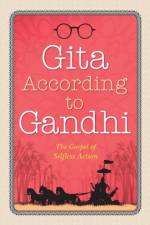av Antoine de Saint-Exupery
147 - 317
First published in 1943, The Little Prince by Antoine de Saint-Exupery has been translated into more than 250 languages, becoming a global phenomenon.The Sahara desert is the scenery of Little Prince's story. The narrator's plane has crashed there and he has scarcely some food and water to survive. Trying to comprehend what caused the crash, the Little Prince appears. The serious blonde little boy asks to draw him a sheep. The narrator consents to the strange fellow's request. They soon become friends and the Little Prince informs the pilot that he is from a small planet, the asteroid 325, talks to him about the baobabs, his planet volcanoes and the mysterious rose that grew on his planet. He also talks to him about their friendship and the lie that evoked his journey to other planets. Often puzzled by the grown-ups' behavior, the little traveler becomes a total and eternal symbol of innocence and love, of responsibility and devotion. Through him we get to see how insightful children are and how grown-ups aren't. Children use their heart to feel what's really important, not the eyes.Heart-breaking, funny and thought-provoking, it is an enchanting and endlessly wise fable about the human condition and the power of imagination. A book about both childhood and adulthood, it can be read as a parable, a war story, a classic childrens fairy-tale, and many more things besides: The Little Prince is a book for everyone; after all, all grown-ups were children once.ABOUT THE AUTHOR:Antoine de Saint-Exupry was born in Lyons on June 29, 1900. Later, in Paris, he failed the entrance exams for the French naval academy and, instead, enrolled at the prestigious art school lEcole des Beaux-Arts. In 1921 Saint-Exupry began serving in the military, and was stationed in Strasbourg. There he learned to be a pilot, and his career path was forever settled. Saint-Exuprys next novel, Wind, Sand and Stars, was published in 1939. A great success, the book won the Acadmie Franaises Grand Prix du Roman (Grand Prize for Novel Writing) and the National Book Award in the United States.On July 31, 1944, he set out from Borgo, Corsica, to overfly occupied France and never returned.







